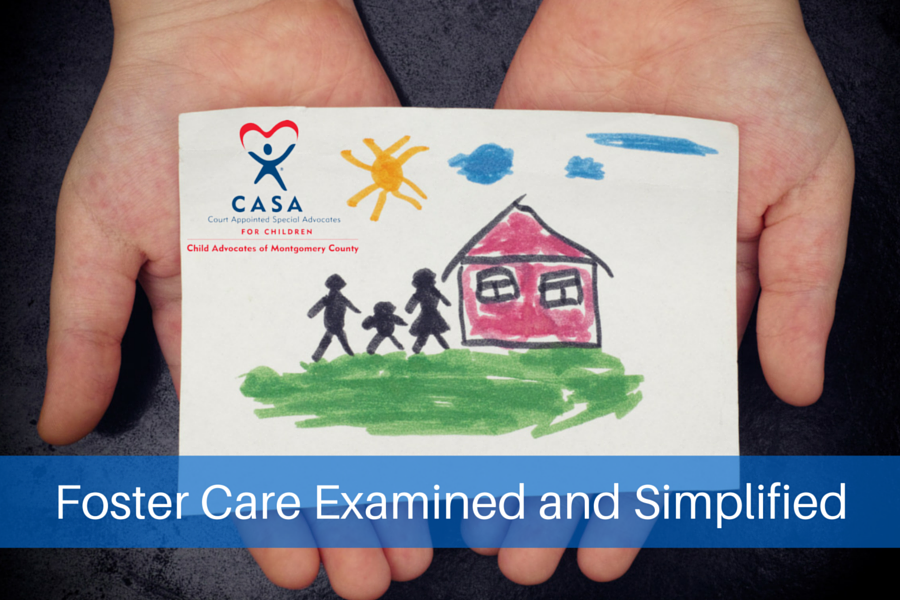Foster Care Examined and Simplified

In this country, hundreds of thousands of children are in the foster care system, which means that many are living without permanent homes and families. About one-third of these children are eligible for adoption but will wait an average of more than three years before being adopted. Some will be separated from their brothers and sisters, while others will bounce from one foster care home to another and never know when they will be uprooted yet again.
In 2006, ABC reported that taxpayers were spending $22 billion a year on foster care programs. That works out to $40,000 per year per child. Plus the federal government contributes $5 billion. Those figures have certainly increased in nine years. Additionally, the report stated that 30% of the homeless in America, and 25% of those in prison had once been in foster care.
What are the National statistics of children in foster care?
Hispanic 43%, non-Hispanic Black 22%, and Non-Hispanic White, 30%. These are staggering numbers and point to the need for both bilingual foster parents as well as Court Appointed Special Advocates (CASA).
Why do children enter foster care?
Due to a crisis of parenting, they go into foster care because they have suffered significant abuse and/or neglect. The family stressors like poverty, substance abuse, incarceration, mental illness, and homelessness force the state to intercede for these children and protect them from further harm. Children are placed with trained foster families, relatives, or in group care facilities. During this time, social workers and judges work with their families, the goal being a safe reunification with their family or another permanent living situation.
Federal law requires that all children have a permanency goal. More succinctly, a defined plan for the child to safely leave the foster care system must be in place. Initially, the goal is for the children to return to the birth parents if they can do so without fear of harm. In Montgomery County in 2014, 29% of these foster care children were reunited with their family once the parents finished the counseling and treatment deemed necessary.
If the parents are incapable or disinclined to make the required life changes, other permanent living arrangements are sought, usually adoption, a guardianship with another family member or friend, or remaining in foster care until the age of 18 when they age out, regardless of whether they are emotionally and financially equipped to suddenly live on their own. These children are in need of loving, safe homes.
What is required to become a foster parent?
If you have considering becoming a foster parent, here are some of the answers to questions you may have. The entire process in Texas, including training, usually takes two to three months. You can be married or single, a homeowner or a renter. The only financial requirement is that you earn sufficient income to support yourself and your family other than the subsidies for accepting a child living in foster care. You don’t have to be a stay-at-home mom or dad. Discuss your options with a licensing agency to help with child care costs. You must be at least 21, but no other age requirements apply. Foster parents do not pay the child’s medical expenses, other than over-the-counter medicines and supplies. The child is covered by the governing jurisdiction for their medical, dental, and mental health care needs.
What if you develop a strong connection with your foster children?
It may be painful when the child leaves, but he or she has suffered things no child should have to endure. They need love. They need care. When you accept a foster care child into your home, you should accept him or her into your heart.
A child needs you, and you can make a vast difference in a young life. If you find foster parenting may be more of a commitment than you can make at this time, consider being the voice of a child and become a CASA—Court Appointed Special Advocate. You can provide support and speak up for the best interests of an abused or neglected child who needs you. And CASA Child Advocates of Montgomery County needs more bilingual CASA volunteers as well.
